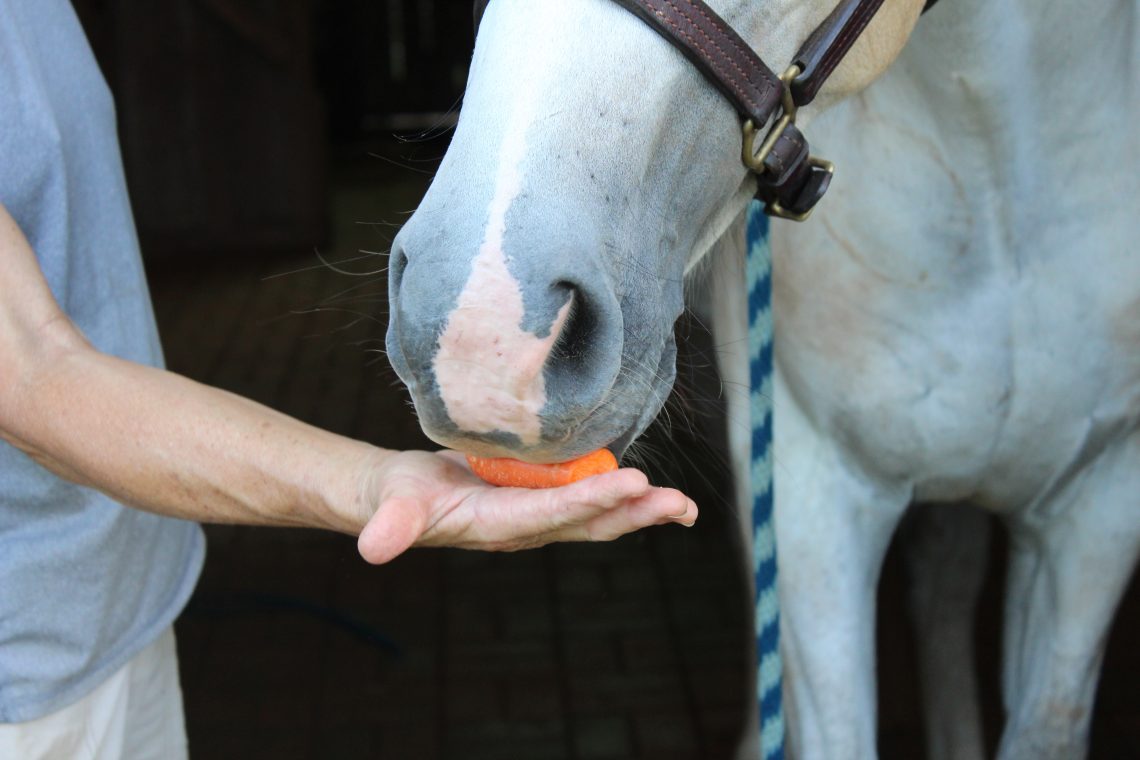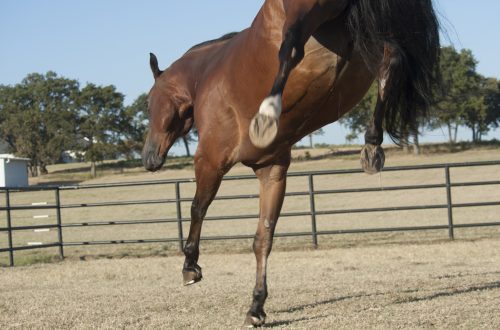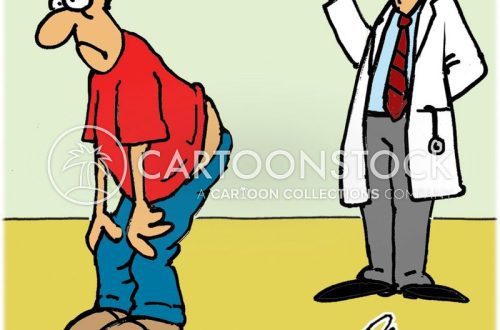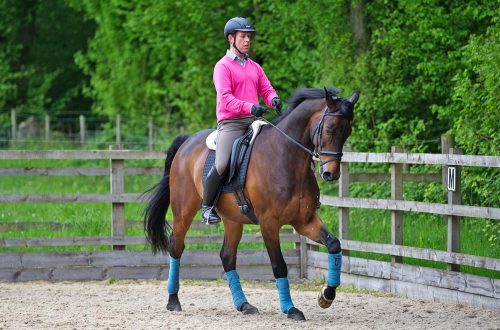
A few words about horse memory and training approaches
A few words about horse memory and training approaches
“The horse is stupid, but memory,” wrote James Phyllis. I disagree with the thesis about horse stupidity: years of communication and interaction with this animal taught me to think differently. Of course, like other living creatures, the level of intelligence of horses varies individually depending on a variety of factors (including breed, sex, age and life experience of a particular horse). But when it comes to memory, you can’t argue with Phyllis. Once having learned something, especially at a young age, the horse remembers it for life. In the same way, horses remember both people and relatives with whom they were once together – this is evidenced not only by numerous stories from life, but also by modern studies of ethologists. No wonder the main brain structure responsible for memory is called the hippocampus, from hippocampus – a seahorse, a symbol of the sea god Poseidon. If a person’s hippocampus is destroyed as a result of illness or injury, then memory is also destroyed.
You will say: what about those horses that behave like goldfish – blinked and immediately forgot? Yes, such “instances” undoubtedly occur. Here are just the reasons for such a reaction may be different.
Some of the horses simply do not understand the meaning of the requirement, and therefore do not remember it. After all, horses are very economical in terms of their own energy consumption, and prefer not to do things that they consider useless and pointless! Someone needs to repeat the same action more times due to the fact that information is poorly “distilled” from short-term memory to long-term memory (which, by the way, may be due to a lack of certain vitamins and microelements in the animal’s body, for example, Fe or Zn).
Another common problem may be that all horses react very strongly to any strong human emotions, including negative ones. When the level of stress hormones begins to exceed the value optimal for learning, they and completely stop receiving information. A horse that is driven “until blue in the face” for the sake of the correct performance of a certain element or exercise, or even unfairly punished, is occupied only with the thought of finally being left alone. After all, there is a huge difference between realizing and remembering the necessary movement or performing it mindlessly mechanically, especially if the work is accompanied by irritation and anger on the part of a person. Were you in childhood in similar situations with the subsequent feeling of your own helplessness, hopelessness, cornered? If such a story is repeated repeatedly or does not change for the better over a long period of time, learned helplessness syndrome develops. This is the very state when you take on anything, everything falls out of your hands, you are almost always unsure of yourself, highly anxious and do not get the slightest pleasure from the activity, even if at first this activity aroused sincere interest! You must have come across horses in such a state of mind and psyche in general in almost any rental or training program. Depending on its individual characteristics, as a result of such training and education, a horse can become openly aggressive or completely withdraw into itself, sometimes “exploding” with unpredictable reactions. It’s a shame when horses find themselves in such a situation, once they began to interact with people with an open heart and a soft look. Due to stress, the horse ceases to understand what is wanted from it and why it is punished, working with it becomes not only useless, but also harmful. The only thing that the horse remembers during the session is unpleasant emotions and physical discomfort.
The direct connection between the quality of memory and the emotional coloring of information gives us a huge advantage in training horses. Don’t be stingy with praise when you’re really happy with your horse! Praise for a horse is not so much in a piece of sugar, but (and above all) in your sincere emotions. Rejoice with the horse, laugh, say “thank you”, and he will remember the required action better than just receiving a treat. For horses, positive emotions are just as important a reinforcer as food, if not more so. Let’s not forget that a horse is not a predator, and therefore the perception of the “carrot and stick” ratio is fundamentally different from the perception of a dog. For such a social animal as a horse, approval from an authoritative member of society (in this case, a person)) means status in the community, comfort and safety (the basic need of the prey animal).
Developed horse memory gave rise to good advice to end training on something good, which, however, applies not only to horses. Some take this idea too literally, as an indispensable need to squeeze out of the horse what he did not succeed in, in order to praise and “get behind”. Most often, this approach leads to an endless workout, as a result of which the couple actually turns off from what is happening and begins to climb the wall. The fact is that when something goes wrong for a horse, it is most often the person who is to blame for this, who cannot always and correctly evaluate his own actions and eliminate errors. This can apply to both the rider and his coach. To punish a horse for our miscalculations is to create a negative attitude towards work and interaction with people in general, that is, to force a powerful horse’s memory to work against itself.
Therefore, I make the rule “end on a good note” concrete for myself: I end the training with something that the horse can do in a relaxed and enjoyable way. With this approach, the horse always goes to the arena with pleasure and tries something new, which is far from always pleasant and understandable for him. Therefore, our horses are always very jealous of who is taken to work, and who has to wait for their turn. Activity for a horse is associated with pleasure and variety in life. Of course, this approach is not always acceptable in sports. But, when we talk about preparing a calm and good-natured hobbyist, tuned to interact with a person, it seems to be more than relevant.
Every medal always has two sides. The same applies to horse memory. Usually a high intelligence in a horse is combined with a tenacious memory. For example, our pony remembers everything “from the Nativity of Christ” and mathematically accurately calculates his actions far in advance. Any mistake in working with such a horse is fraught with problems, from which you can then get rid of for years. But such a horse also learns everything quickly and efficiently, at any age and for life. Therefore, with such a smart and memoryful student, you can try different methods in the classroom and boldly experiment.
With horses of “average” indicators of intelligence and memory, experimentation should be done carefully. New requirements that go against the previous ones can cause an adult horse not only misunderstanding, but even resentment. In such cases, do not insist immediately on many things – introduce new information very gradually and dosed.
Teaching older horses new skills is often a thankless task if you try to start fresh with them. In this case, the horse can completely withdraw and withdraw into itself. Therefore, operate more with what the horse already knows and can do. Once I had to teach the tricks of riding a 20-year-old horse, before that all my lifepulling a cart. This was done thanks to his great interest in interaction and at the same time with the help of the maximum inclusion in the classes of his skills.
Productive lessons for you!
Nina Bryantseva, co-author of the PERFECT HOBBY-HORSE method, horse owner and trainer.
- MrakobesSV 25 February 2020 city
Good article! Wish more people would read it! Answer





